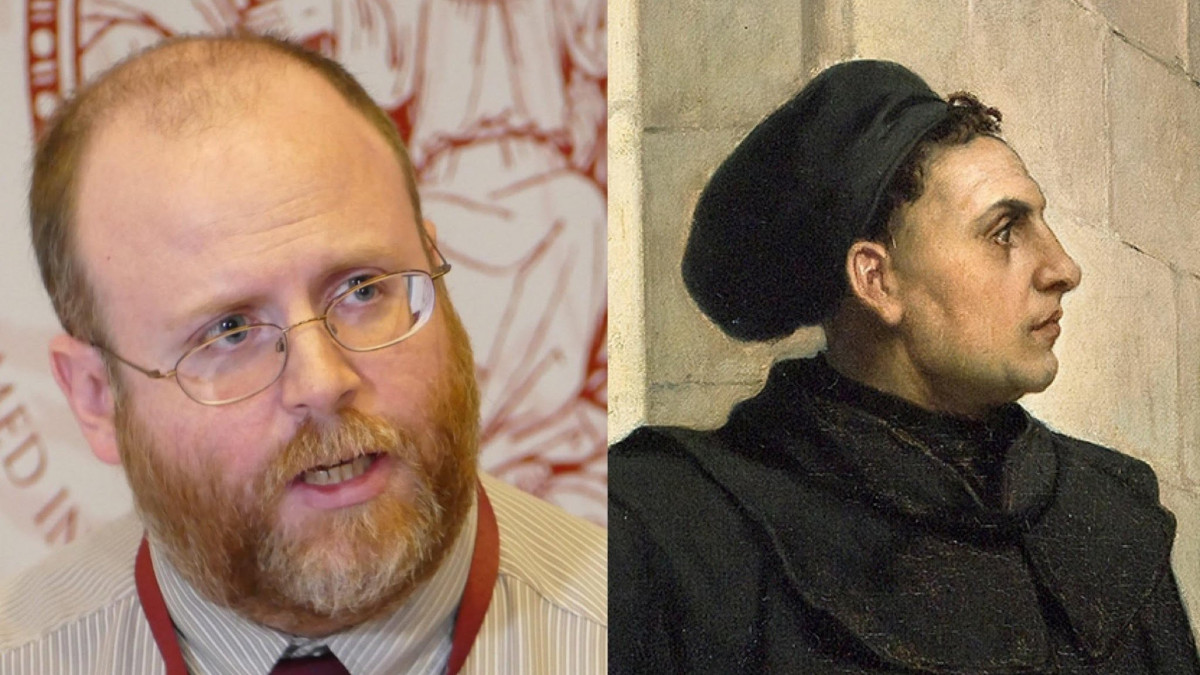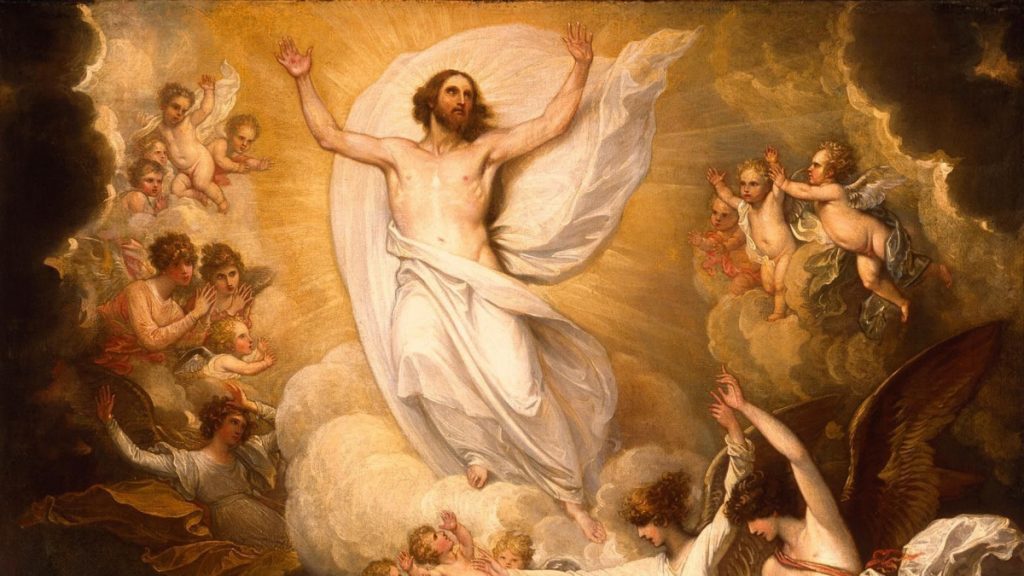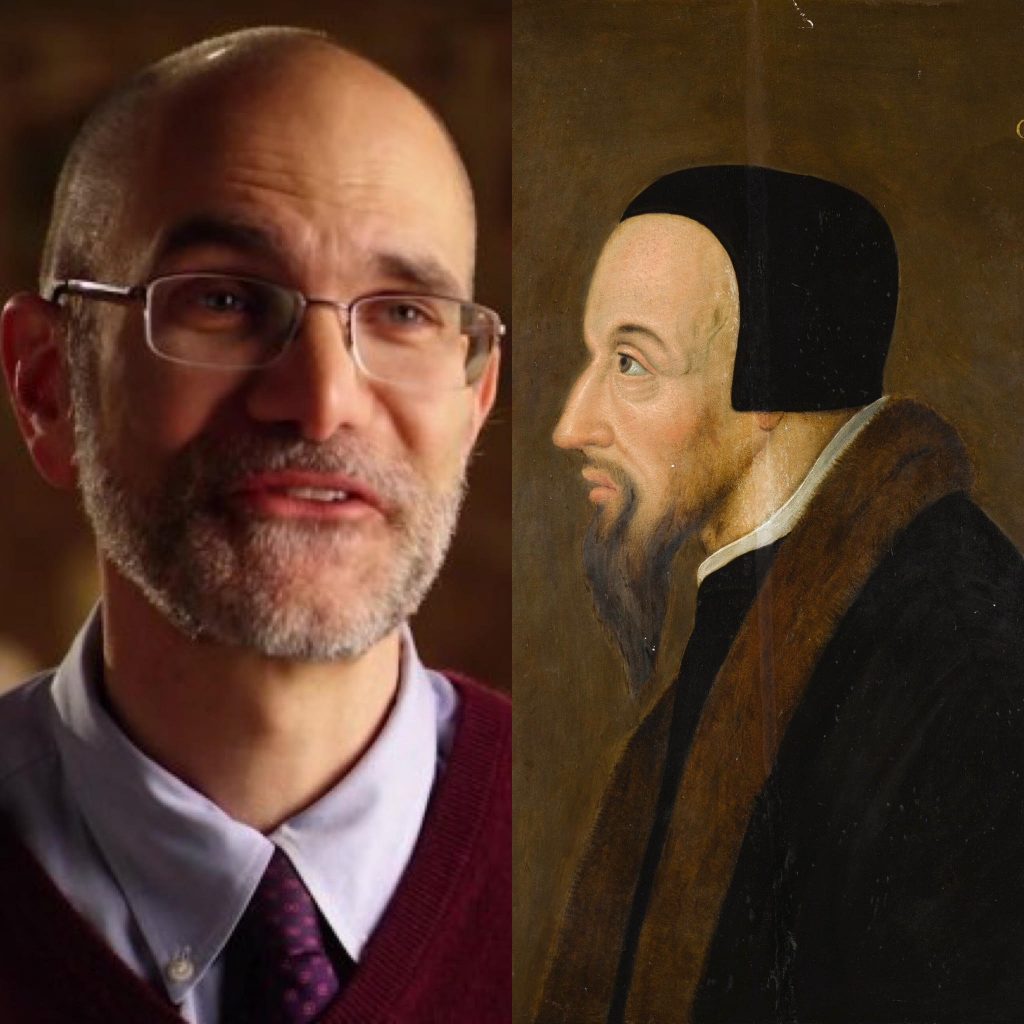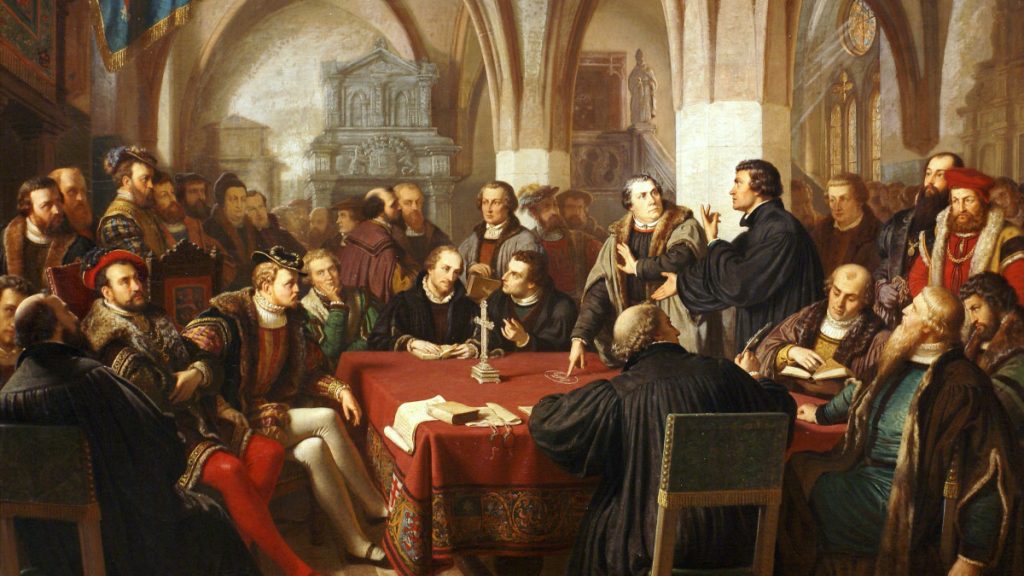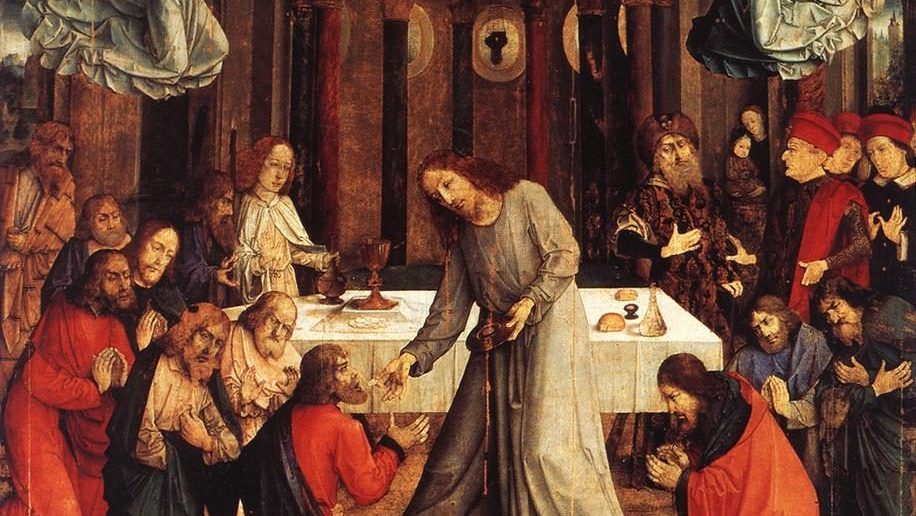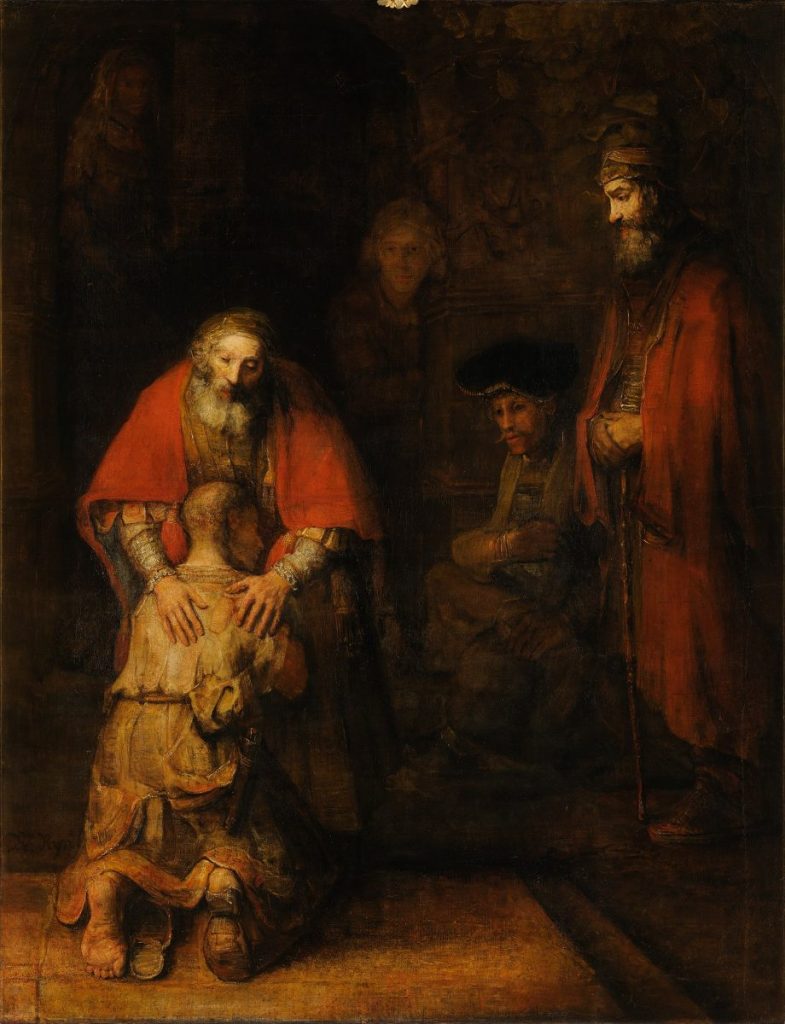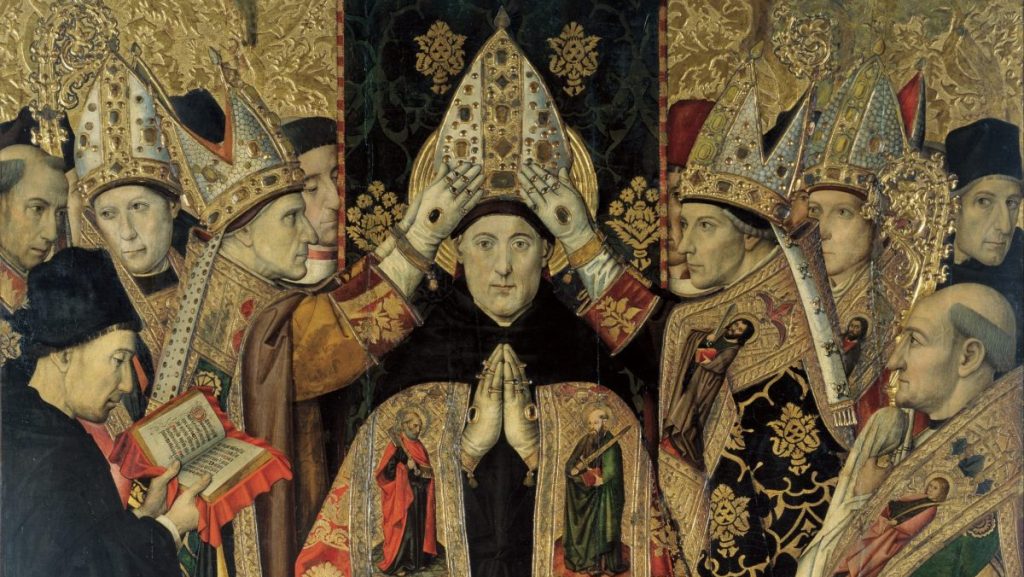Relevant Resources
Introduction
In this installment of “Setting the Record Straight,” I want to share an insight from a fellow convert and friend, Dr. Alan Fimister, that summarizes the case I ultimately became convinced of, namely that protestantism laid the foundations of secularism.
This was, indeed, one of the reasons I became Catholic. I came to realize that protestantism had laid an ax to the foundations of Christian civilization—perhaps the sharpest ever devised in all 1,500 years of Church history up to that point.
It did so by destroying the social nature, and thus influence, of religion. By denying that God had established an infallible Church through which the true faith could be known through all time and throughout the world, protestantism began the process of atomizing the contents of divine revelation, making them dependent on individual interpretation (whether individual people, or individual sects), rather than public authority. This invariably initiated a process by which divine revelation itself would be excised from public life—modern secularism.
One of the most succinctly brilliant explanations of this process was provided by Dr. Alan Fimister, a British-American Catholic seminary professor, lawyer, historian, and theologian. Himself an atheist convert to the Catholic Faith, Dr. Fimister believed it was “obvious” protestantism could not be true or historic Christianity. Many of the reasons for this hinged on this issue.
Roadmap
Our Roadmap is as follows:
- Our thesis is that the so-called “Reformation” gave rise to secularism. We will show this by:
- Citing the arguments made by Dr. Alan Fimister, a historian and theologian, about the necessary implications of private judgment; and
- Why an infallible magisterium is necessary in order to know the true religion; and
- A summary of the conclusions of Dr. Fimister’s argument.
The Role of the “Reformation” in the Rise of Secularism
In a podcast episode, Dr. Fimister laid out how the protestant “reformation” laid the foundations of modern secularism. He says the following in this relevant portion:
The “reformation” said that the principle of interpretation is private judgment. And basically Luther thought “anyone in good faith who interprets scripture will come to the same conclusions as me, so if they don’t, they’re just not in good faith.” But of course that becomes preposterous. You end up with vast numbers of people with vast numbers of incompatible interpretations of Scripture. And what that means is the whole concept of public revelation becomes preposterous. I mean, how can God bring truths into the world which are absolutely necessary for salvation, and then fail to bring a mechanism into the Church by which one can be morally certain of what those truths are? So the idea that there is no visible Church that can objectively guarantee the possibility of professing the true faith without error, once you give up on that, then you’ve basically rendered divine revelation absurd as a concept. And therefore, the “reformation” flows seamlessly into the “enlightenment,” which is the movement to eliminate divine revelation as the principle of public policy and public law.
But given that man can know the existence of God by natural reason, and therefore knows that he needs to be told by God how to worship Him in an acceptable manner, if there is no way furnished by God to tell us how to worship Him in an acceptable manner, that implies God doesn’t exist. So the holing of divine revelation below the water line by the principle of private judgment leads inexorably to the holing of the idea of theism below the water line as a principle of public policy. So you end up with a violent secularization of the civil order, and its replacement with secular ideology, which is, more or less—welcome to the 21st century.
The Necessity of an Infallible Magisterium
When Dr. Fimister speaks of being “morally certain” of the truths of the Christian Faith, he is paraphrasing the Catechism of the Catholic Church (par. 890), which explains God’s purpose in establishing the Magisterium (teaching authority) of the Church as follows:
The mission of the Magisterium is linked to the definitive nature of the covenant established by God with his people in Christ. It is this Magisterium’s task to preserve God’s people from deviations and defections and to guarantee them the objective possibility of professing the true faith without error. Thus, the pastoral duty of the Magisterium is aimed at seeing to it that the People of God abides in the truth that liberates.
In a May 2023 article in Voice of the Family entitled “The crowning deception,” Dr. Fimister expanded on this topic further:
The decline of western civilization into the present state of intellectual anarchy and nihilistic hedonism began with certain philosophical aberrations in the fourteenth century, but the first direct blow against the vital organs of our culture was struck by the Reformation. By declaring the interpretation of the scriptures a matter of private judgement, the “Reformers” made the very idea of divine revelation absurd. What would be the point of God instructing the human race in those truths necessary for salvation through a collection of inspired and inerrant sacred texts and then leaving the interpretation of those texts to the completely arbitrary whim of each individual? Should a special intervention of the Holy Spirit be required each time if the Bible is to be read correctly, the Bible itself becomes superfluous; one might as well be given special revelations on [an] ongoing basis if that is essentially what is happening anyway every time anyone reads the scriptures. Naturally, not in fact being of the Holy Spirit, the Protestant movement immediately collapsed into innumerable sects, each having to claim that their tiny band were Christ’s true church or that this Church is in fact an invisible set of opposed and mutually contradictory gatherings wholly incapable of fulfilling the Lord’s command to teach the nations “everything that I have commanded you.”
Sometimes one will hear the argument made that, in upholding the infallibility of the church, Catholics are putting the “teachings of men” on a par with or even above the inspired word of God. The falsity of this claim is easily illustrated. Imagine every citizen of the United States were to be authorized to take in hand his own copy of the US Constitution and interpret it for himself, recognizing no final authority beyond or above the individual’s interpretation of that document. The result would be the total destruction of the USA as a polity. Imagine instead there were instituted a Supreme Court to make final determinations concerning the meaning of the Constitution. This would secure the corporate existence of this republic. The problem of course, as many Americans realize, is that these “interpretations” can be but a thin veneer for the eisegesis that projects the personal preferences of the jurist into the document without serious reference to its original meaning. This is just what liberal protestant theologians do with the text of sacred scripture and what US Supreme Court justices do with the US Constitution. Imagine instead God were to endow the justices of the Supreme Court with a charism of infallibility so they could not in the final discharge of their official duties to interpret the constitution contrary to its original sense even if they wanted to. This would not put their opinions on the same level as the text, but quite the opposite, it would ensure the eternal primacy of the original meaning over the private opinions of the experts. This is why God endowed the Catholic hierarchy with the charism of infallibility to ensure the primacy of God’s word over the preferences of ecclesiastics.
By the same logic, without the charism of infallibility, revelation itself is absurd. With grim inevitability therefore, from the poisonous egg of the Reformation there springs forth the “Enlightenment”: the movement to eliminate divine revelation as a principle of public policy and public law. Christianity being the foundation of the western civil order, such a secularization required violent revolution. All the many revolutions which have characterized western history since the late eighteenth century are but episodes in one great unchaining of evil, the return of the seven more terrible spirits to the house cleaned and swept at the foundation of Christendom.
The movement to preserve and further this elimination of divine revelation as a principle of public policy and public law is called liberalism.
Conclusion
From Dr. Fimister’s argument, we can arrive at the following conclusions:
- The protestant principle of “private judgment” makes the concept of public revealed religion absurd.
- It does this by removing the mechanism by which Christians can be morally certain of the truths revealed by God which are necessary for salvation, which is the authority of the visible Church, which “can objectively guarantee the possibility of professing the true faith without error.”
- Once this “objective possibility” is removed, revelation becomes absurd as a concept, which is why the “Reformation” flowed seamlessly into the “enlightenment,” which is the movement to eliminate divine revelation as the principle of public policy and public law.
- Man can know by reason that God exists, and that he must worship Him in an acceptable manner. But without a mechanism by which such truths can be known with moral certainty, this implies God does not exist since He did not furnish man with information vital to his salvation. This led to the violent secularization of the civil order.
- An infallible magisterium is required in order “to guarantee the objective possibility of professing the true faith without error.”
- This can be shown by the fact that every community must have an authority who can render a verdict on disputed questions for the community. Since revelation is from God, disputes about its contents can only be binding as revelation if they are settled by an authority that cannot err, since God cannot lie.
- Such an infallible magisterium is not above the text of Scripture, but rather its servant, ensuring its meaning is being properly ascertained for the sake of God’s people.
